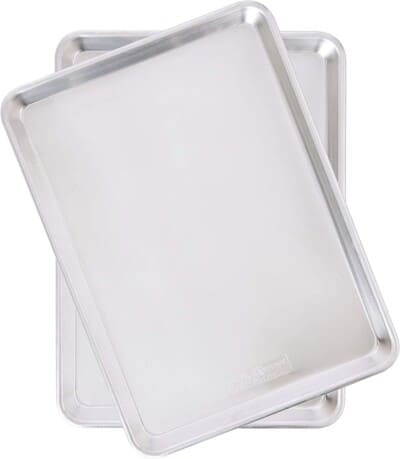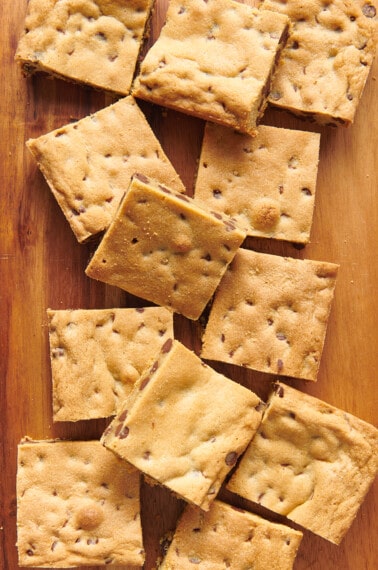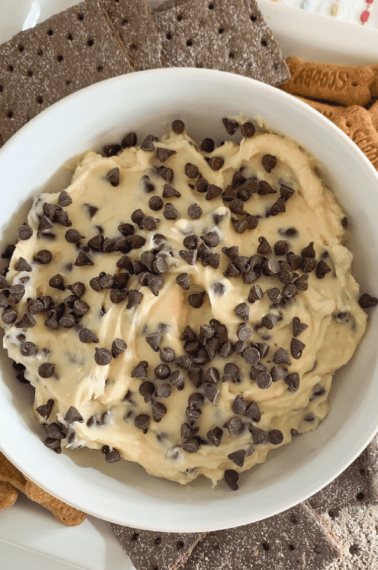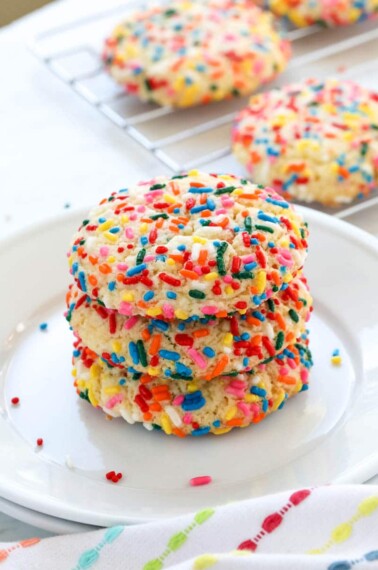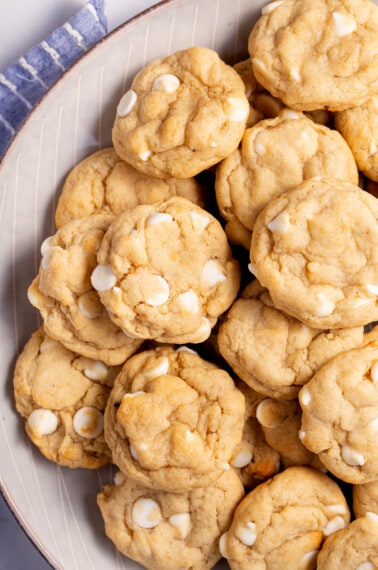You’re all ready to enjoy a batch of warm cookies, and then you take the pan out of the oven and see they’ve spread and baked into one giant cookie. Oof. Here’s why cookies spread and what you can do to keep it from happening next time.

Have you ever wondered why your cookies spread, becoming super thin and crunchy? Or why they always seem to bump up against the other cookies on the sheet, even when you thought you gave them enough space? This can be quite the disappointment, especially when you were looking forward to a thick, chewy cookie. Here’s why cookies spread when baking and the best ways to make sure it doesn’t happen.
Why Do My Cookies Spread Out So Much?
This is a question I have asked many times. I personally love thick chewy cookies, so when I open the oven and see a flat, crunchy cookie instead, I am definitely upset. Figuring out why cookies spread is the first step toward fixing the problem.
There are actually quite a few reasons why your cookies spread in the oven:
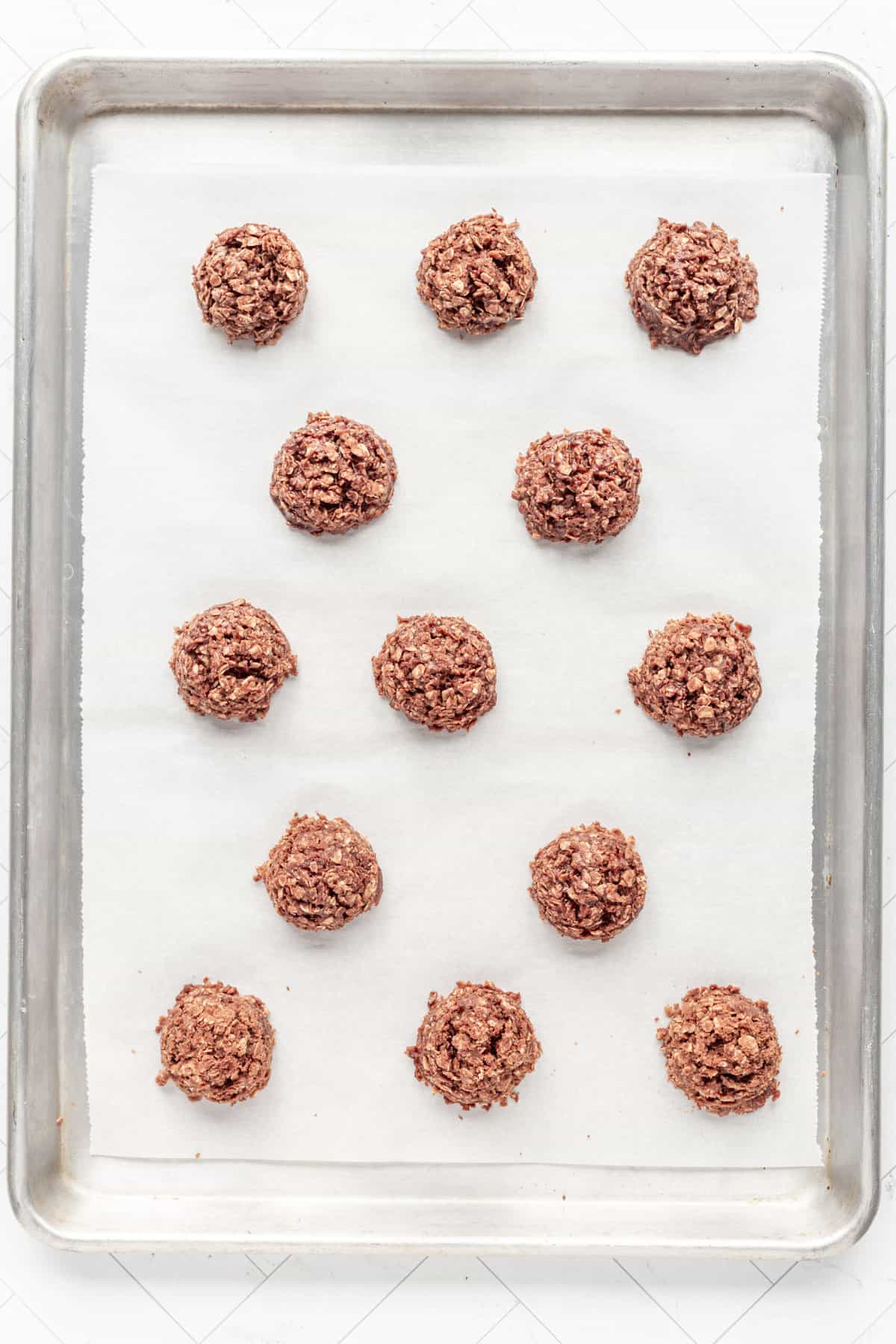
1. Using Greased Cookie Sheets
I used to think that buttering a cookie sheet before adding the cookie dough was the right thing to do. Boy was I wrong! If you want thick cookies, you do not want to use a greased cookie sheet.
Greasing a cookie sheet will make your cookies spread. The fat from the tray will cause the dough to easily flatten as the cookies bake. This will give you thin, crispy cookies that may not be what you are looking for.
Solution: Use parchment paper to line your cookie trays. The cookie dough will not spread on the parchment and the cookies will stay nice and thick. If you do not have parchment paper, simply bake on an ungreased cookie tray. Most cookie doughs have enough butter and fat to prevent them from sticking to the pan.
2. Warm Cookie Dough
Warm cookie dough will spread quickly in the hot oven. If your cookie dough is warm, then the butter inside the cookie dough is warm (makes sense, right?). The butter is what melts in the cookie dough, making it spread across the pan.
Solution: Make sure your cookie dough is cold, or at least colder than room temperature. Use chilled butter when blending your cookie dough, then bake the cookie dough right away.
You can also pop the cookie dough in the fridge for about 30 minutes, letting it chill and become more firm. Scoop the cold cookie dough and bake it right away. You will notice that this simple change will help prevent cookie dough from spreading.
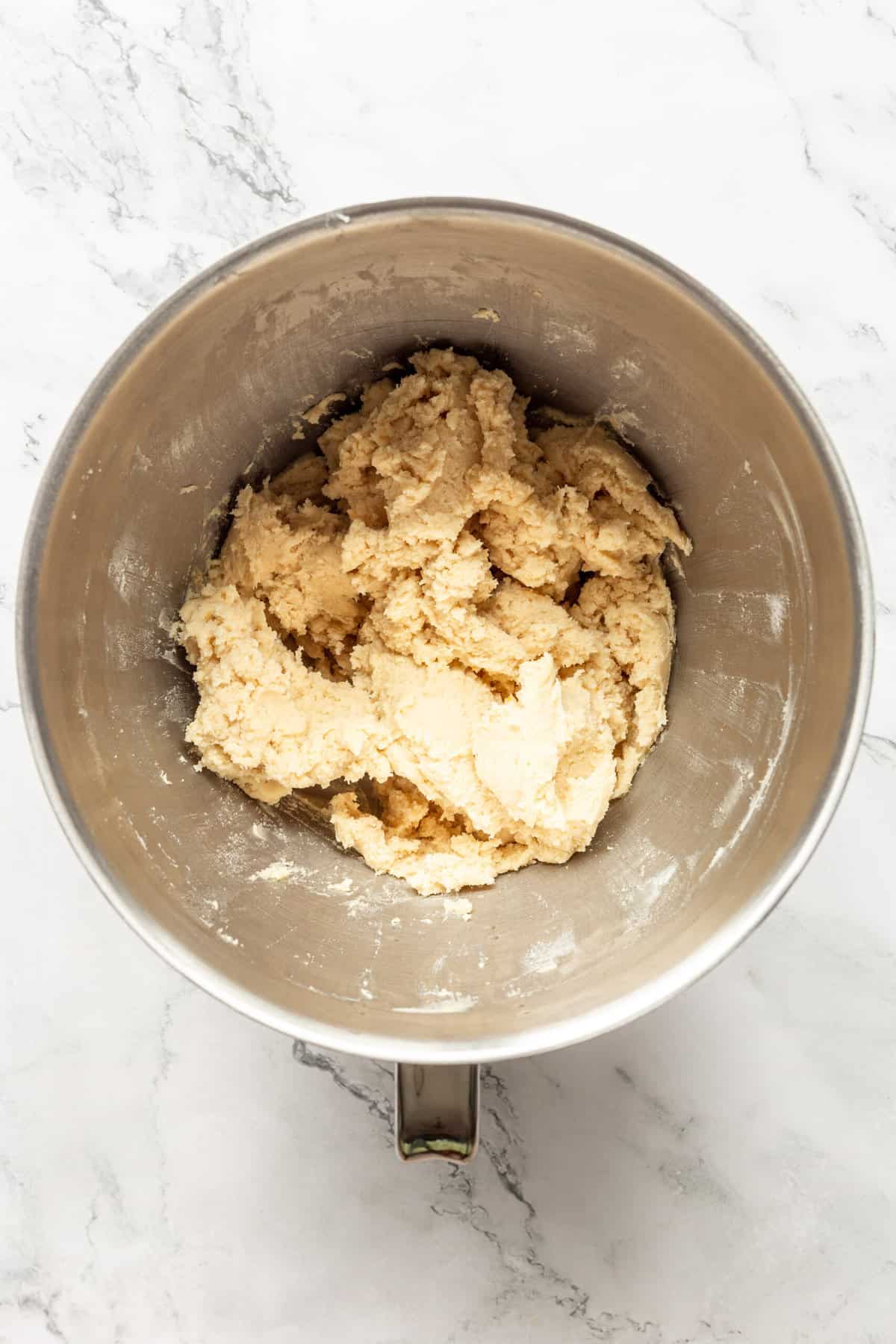
Quick Tip
I like to scoop my cookie dough into balls and freeze them in a gallon-sized freezer bag. Anytime I want a warm, chewy cookie, I preheat my oven, grab as many frozen cookie dough balls from my freezer as I’d like and bake! You can bake most cookie dough from frozen and simply add a minute on to the baking time. Baking the extra cold dough helps make thick, perfect, quick cookies that taste amazing and don’t spread much at all.
3. Too Much Fat
If your cookie dough has too much oil, butter, or fat in general, it will cause the cookie dough to spread. The fat will melt inside the cookie dough, making thin crispy cookies. Sometimes, there is so much fat in the cookie dough, the cookies almost look fried when they come out of the oven. The fat sizzles under the thin dough and pan fries the cookies. This is probably not what you want!
Solution: Be sure to measure the fat in the cookie recipe correctly. However, if you have already made your whole batch of cookie dough and notice that the first few cookies bake too thin, you can try mixing in a tablespoon or two of extra flour into the dough. The extra flour will absorb some of the fat and help prevent spreading.
4. Too Much Sugar
Just like extra fat makes cookies spread, too much sugar can also cause cookies to become too thin. Sugar melts in high heat so the sugar inside the cookies will melt as the cookies bake. This is why cookies do not have a gritty texture from granulated sugar- that roughly textured sugar melts right into the cookies!
Too much sugar will melt in the cookie dough, make the dough super soft and really thin. Too much sugar will also make your cookies crispy and crunchy rather than chewy.
Solution: Make sure you always measure the sugar in your cookie dough correctly. If you think your cookies are spreading in the oven because they have too much sugar, try adding two to three tablespoons of extra flour to the cookie dough. More flour will help give the cookie dough a little more structure and help the dough hold its shape as it bakes.

5. Oven Temperature is Too Low
I am always anxious to get my cookies into the oven. The sooner they bake, the sooner I can eat one! However, putting your tray of cookies into the oven before the oven is hot will surely make your cookies spread.
If your oven is not hot, the cookie dough will start to melt in the oven rather than bake. The warming cookie dough will spread across the pan, making thin, tough cookies. Cookies need that instant high heat to help coagulate the eggs, bake the flour and activate the baking powder or baking soda.
Solution: Always preheat your oven and let it reach the temperature needed to bake your cookie dough. I like to turn my oven on before I even start making my cookie dough. By the time my cookie dough is scooped and on the baking tray, the oven is at the perfect baking temperature.
6. Undermixed Butter
The first step in most cookie recipes is to cream the butter and sugar. Creaming the butter, or beating it rapidly, helps create air bubbles in the butter. When you see the butter and sugar mixture get super light and fluffy, this means there are lots of air bubbles. This is good!
The air bubbles in the cookie dough expand as they heat in the oven, helping the cookies rise and get thick. If your butter and sugar mixture is not creamed enough, there aren’t enough air bubbles and the butter will melt inside the cookie rather than help with the overall structure.
Solution: Be sure to cream your butter and sugar well, scraping down the bowl a few times to incorporate all the butter evenly. Try to cream the butter and sugar for at least 2-3 minutes. The mixture should be cold, soft, and light in color.
Tools for Perfect Cookies
Click on the products below to see my favorite tools for making cookies!
How to Help Cookies Keep Their Shape While Baking
Hopefully, these explanations helped you learn why your cookies spread when baking. Here is a quick recap of what you can do to prevent cookies from spreading in the oven:
- Use parchment-lined baking trays, not greased trays.
- Bake the cookie dough when it is cold.
- Make sure you measure your fat and sugar carefully and accurately.
- Don’t put the tray of cookie dough in the oven until the oven is at the correct baking temperature.
- Be sure to cream your butter and sugar well.
Follow these tips and you will stop your cookies from spreading and be able to make nice, thick chewy cookies. Enjoy!
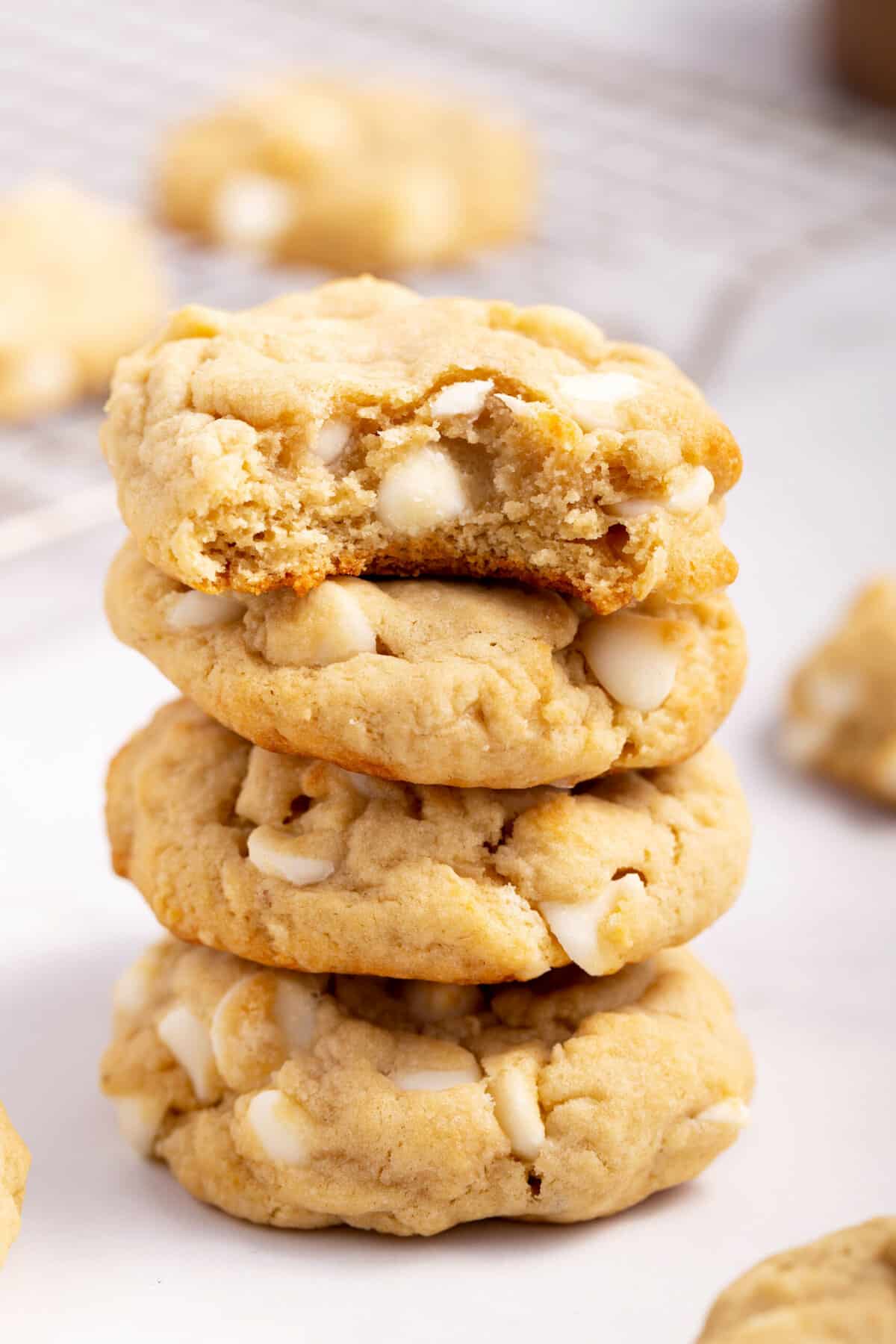
Amazing Cookie Recipes to Try
Cookies
Chocolate Chip Cookie Bars
All Recipes
Chocolate Chip Cookie Dough Dip
Cookies
Cool Whip Cake Mix Cookies
Cookies
Funfetti Sugar Cookie Bars
Cookies
Funfetti Cake Mix Cookies
Cookies

